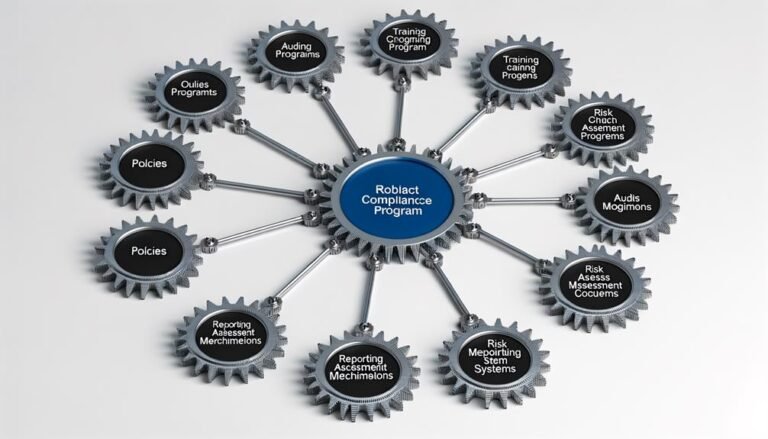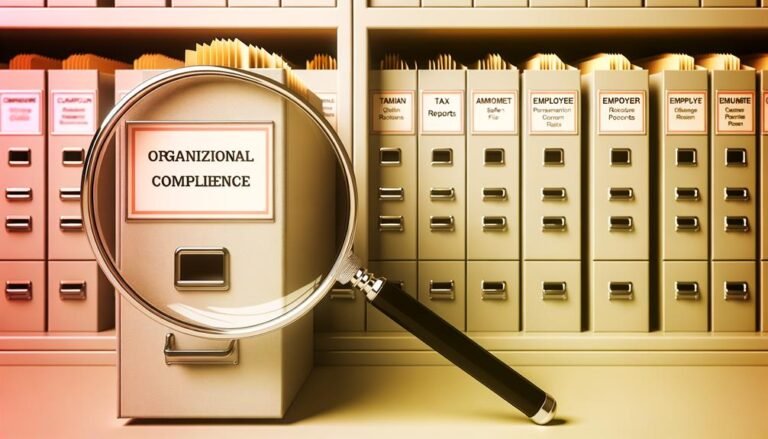Optimizing PCI Compliance Tasks: Essential Requirements for Effective Management
In today’s digital landscape, organizations that handle payment card transactions must prioritize PCI (Payment Card Industry) compliance to protect cardholder data and ensure secure transactions. Effectively managing PCI compliance tasks requires adherence to specific requirements and best practices outlined by the PCI Data Security Standard (PCI DSS). This article explores essential requirements and strategies for optimizing PCI compliance tasks within organizations.
Understanding PCI Compliance Requirements
PCI compliance means adherence to the Payment Card Industry Data Security Standard (PCI DSS), which initiates security needs for businesses that handle payment card transactions. The PCI DSS consists of 12 main requirements, categorized into six control objectives:
- Securing cardholder data
- Maintaining a secure network
- Implementing strong access control measures
- Monitoring and testing systems
- Maintaining an information security policy
Implementing a Comprehensive PCI Framework
To optimize PCI compliance tasks, organizations should implement a comprehensive PCI framework that aligns with the requirements of the PCI DSS. PCI frameworks encompass policies, procedures, and technical controls designed to achieve and maintain compliance. Key components of a framework include:
Data Encryption: Encrypting cardholder data at rest and in transit to protect against data breaches.
Network Security: Deploying and maintaining secure network infrastructure, including firewalls, routers, and intrusion detection systems, to protect cardholder data.
Vulnerability Management: Regularly scanning for and addressing vulnerabilities in systems and applications to protect against security threats.
Security Awareness Training: Providing regular security awareness training to employees to promote security and compliance.
Streamlining Compliance Tasks with Technology
Effective management of PCI compliance tasks can be facilitated by leveraging technology solutions designed to streamline compliance efforts. Key technology requirements for optimizing PCI compliance tasks include:
- PCI Compliance Software: Implementing specialized PCI compliance software to automate compliance workflows, manage security controls, and generate compliance reports.
- Vulnerability Scanning Tools: Utilizing automated vulnerability scanning tools to address security vulnerabilities in systems and applications.
- Security Information and Event Management (SIEM): Deploying SIEM solutions to track and analyze security events, detect anomalies, and respond to incidents promptly.
- Data Loss Prevention (DLP) Solutions: Implementing DLP solutions to prevent unauthorized transmission of sensitive cardholder data and protect against data breaches.
- Endpoint Security Solutions: Deploying endpoint security solutions to protect devices and endpoints accessing cardholder data from security threats.
Ensuring Continuous Compliance Monitoring
Optimizing PCI compliance tasks requires continuous monitoring of security controls and adherence to compliance requirements. Organizations should implement proactive measures to monitor compliance status, detect deviations from PCI DSS requirements, and address non-compliance issues promptly. Key strategies for continuous compliance monitoring include:
- Regular Security Assessments: Conduct regular internal and external security assessments, including penetration testing and vulnerability scans, to identify and mitigate security risks.
- Real-time Monitoring: Implementing real-time monitoring of critical systems and networks to promptly detect and respond to security incidents.
- Audit Trail Management: Maintaining audit logs and records of security events to facilitate compliance audits and investigations.
- Incident Response Planning: Developing and implementing incident response plans to effectively address security breaches and data incidents.
Empowering Cross-Functional Collaboration
Optimizing PCI compliance tasks involves fostering collaboration among different organizational business functions. Compliance with PCI DSS often requires input and cooperation from IT, security, finance, operations, and legal departments. By establishing cross-functional teams and promoting collaboration, organizations can ensure alignment with PCI requirements and facilitate the implementation of security controls. Cross-functional collaboration enhances communication, transparency, and accountability, enabling organizations to address compliance challenges collectively and leverage diverse expertise to optimize PCI compliance tasks effectively.
Implementing Regular Security Awareness Training
An essential aspect of PCI compliance is ensuring employees know security best practices and compliance requirements. Regular security awareness training programs educate employees about the importance of protecting cardholder data, recognizing security threats, and adhering to PCI DSS requirements. By investing in comprehensive training initiatives, organizations empower employees to become proactive stakeholders in PCI compliance efforts. Security-aware employees contribute to a security culture, reducing human error and enhancing compliance posture.
Utilizing Cloud Security Solutions
For organizations leveraging cloud services for payment processing and data storage, implementing cloud security solutions is crucial for optimizing PCI compliance tasks. Cloud security solutions provide features such as encryption, access controls, and monitoring tools specifically designed for cloud environments. By leveraging cloud security solutions, organizations can ensure the security and integrity of cardholder data in the cloud while meeting PCI DSS requirements. Cloud-based security solutions offer scalability, flexibility, and cost-effectiveness, making them ideal for organizations seeking to optimize PCI compliance in cloud-based environments.
Implementing Multi-factor Authentication (MFA)
Enhancing authentication measures is essential for optimizing PCI compliance tasks and protecting against unauthorized access to cardholder data. Multi-factor authentication (MFA) demands users to provide multiple verification forms before accessing sensitive systems or data. Organizations can strengthen access controls by implementing MFA to access payment processing systems and sensitive applications and mitigate the risk of credential theft or unauthorized access. MFA is a recommended security control under PCI DSS and helps organizations achieve compliance while enhancing overall security posture.
Engaging External Auditors and Consultants
Organizations can benefit from engaging external auditors and consultants with expertise in PCI DSS requirements to ensure the effectiveness of PCI compliance efforts. External auditors provide independent assessments of compliance status, identify areas for improvement, and provide guidance for strengthening security controls. Consultants can assist with implementing PCI frameworks, conduct gap assessments, and provide guidance on best practices for achieving and maintaining PCI compliance. By leveraging external expertise, organizations can optimize PCI compliance tasks, gain valuable insights, and enhance overall compliance readiness.
Optimizing PCI compliance requires organizations to implement essential requirements and strategies to achieve and maintain compliance with PCI DSS. By implementing a comprehensive framework and leveraging technology solutions, organizations can streamline compliance efforts, strengthen security controls, and effectively protect cardholder data.
Utilizing PCI compliance software and other technology tools enables organizations to automate compliance tasks, monitor security controls in real time, and detect security vulnerabilities promptly. Organizations can mitigate security risks, protect against data breaches, and maintain a culture of security and compliance by ensuring continuous compliance monitoring and adherence to PCI DSS requirements. Implementing a robust PCI framework and leveraging technology solutions optimizes PCI compliance tasks and contributes to overall security and resilience against evolving cyber threats. Embracing technology-driven solutions empowers organizations to navigate PCI compliance challenges efficiently and effectively, ensuring the integrity and security of payment card transactions and maintaining trust with customers and stakeholders.








